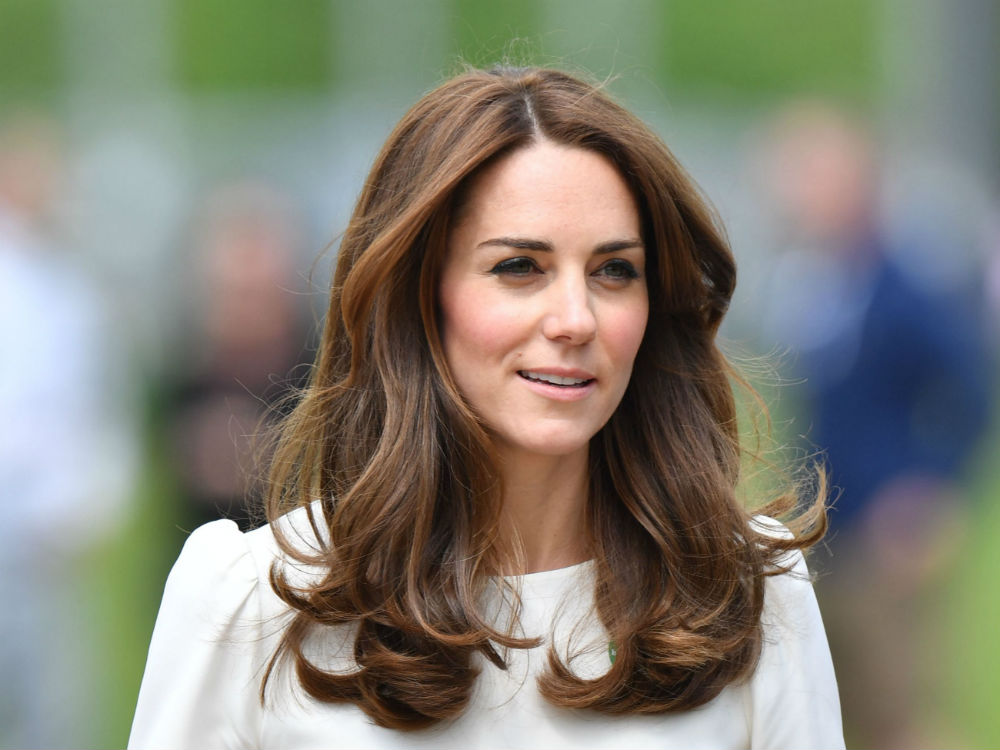Apparently there are 7 types of English surname. Can you find yours?
Track the origins of your surname with these seven last name 'types'...

Celebrity news, beauty, fashion advice, and fascinating features, delivered straight to your inbox!
You are now subscribed
Your newsletter sign-up was successful
Track the origins of your surname with these seven last name 'types'...
Do you know where your surname comes from? For a lot of you reading this (this writer included) your surname won't actually have UK origins.
But for those who have, according to ancestry.co.uk there are apparently seven identifiable 'types' of English surname. And these different groups might provide some clue to your ancestry. Here's how they break down. 1) Surnames from a specific town
Some of these are identifiable now, such as London, Derby or Lincoln. But others might be from places which no longer exist, such as Arrington, from an English town originally called Earningaton. The Duchess of Cambridge's maiden name most likely came from a village called middle tun which meant 'middle farm or settlement.'
2) Characteristic surnames
Surnames which evolved from observations about physical appearance or characteristics, which were originally thought to be nicknames. These include Short, Little, Wise, Good and Hardy. A person called John with dark hair might become John Black while a blonde-haired man could be John White. If this would going on now would we see a lot of Alice Fringe, Jane Lowlights or even Lily Boobjob? 3) Occupational surnames
These names came into fashion around the time of Edward the Confessor (in the 11th Century). Originally these signified traditionally higher ranking jobs such as Mayor and Bishop, but later on craft surnames became common, such as Dyer, Farmer, Glover and Fisher. Some of these job titles are more unrecognisable now. A Cooper, for example, was originally a medieval craftsman who made tubs or barrels and a Parker was a park keeper.
Celebrity news, beauty, fashion advice, and fascinating features, delivered straight to your inbox!
4) Geographic feature names
These are surnames like Stone, Wood, Hill, Forest and Field. A 'wade' was another name for a ford, hence the surname Wade, Moore comes from moor, Woodruff from land thickly covered in white-flowering woodruff and Wold is an old English name for a forest. 5) Patronymic or matronymic
This is when it all goes a bit Margaret Atwood's The Handmaid's Tale. Stevenson means 'son of Steven' or Simpson is thought to be the son of Simmie, which was a common Medieval man's name, then there's Nicholson, Richardson and Robertson. But interestingly, there are plenty of last names which derive from female christian names too. These are rarer than patronymic names and were often given to the children of unwed mothers or children whose fathers had died before birth. In some cases the mother's name was taken if the father's name was hard to pronounce, foreign or had an unfortunate meaning. Examples of matronymic surnames include Marriott (from Mary), Madison (from Maud) and Emmott (from Emma). You might have thought the name Tiffany originated in early 1990s LA rom coms, but actually it was originally a surname that meant 'from Tiffania.'
6) From the name of an estate
The most famous example being Windsor, which was the surname King George V adopted for the British Royal family in 1917 (before this it was Saxe-Coburg and Gotha) due to anti-German sentiment from WW1. Other examples given by Ancestry.co.uk include Ernle and Staunton.
7) Patronage surnames
Such as Kilpatrick which means 'follower of Patrick' or Hickman which means Richard's (Richard used to be Hick) man.
The leading destination for fashion, beauty, shopping and finger-on-the-pulse views on the latest issues. Marie Claire's travel content helps you delight in discovering new destinations around the globe, offering a unique – and sometimes unchartered – travel experience. From new hotel openings to the destinations tipped to take over our travel calendars, this iconic name has it covered.